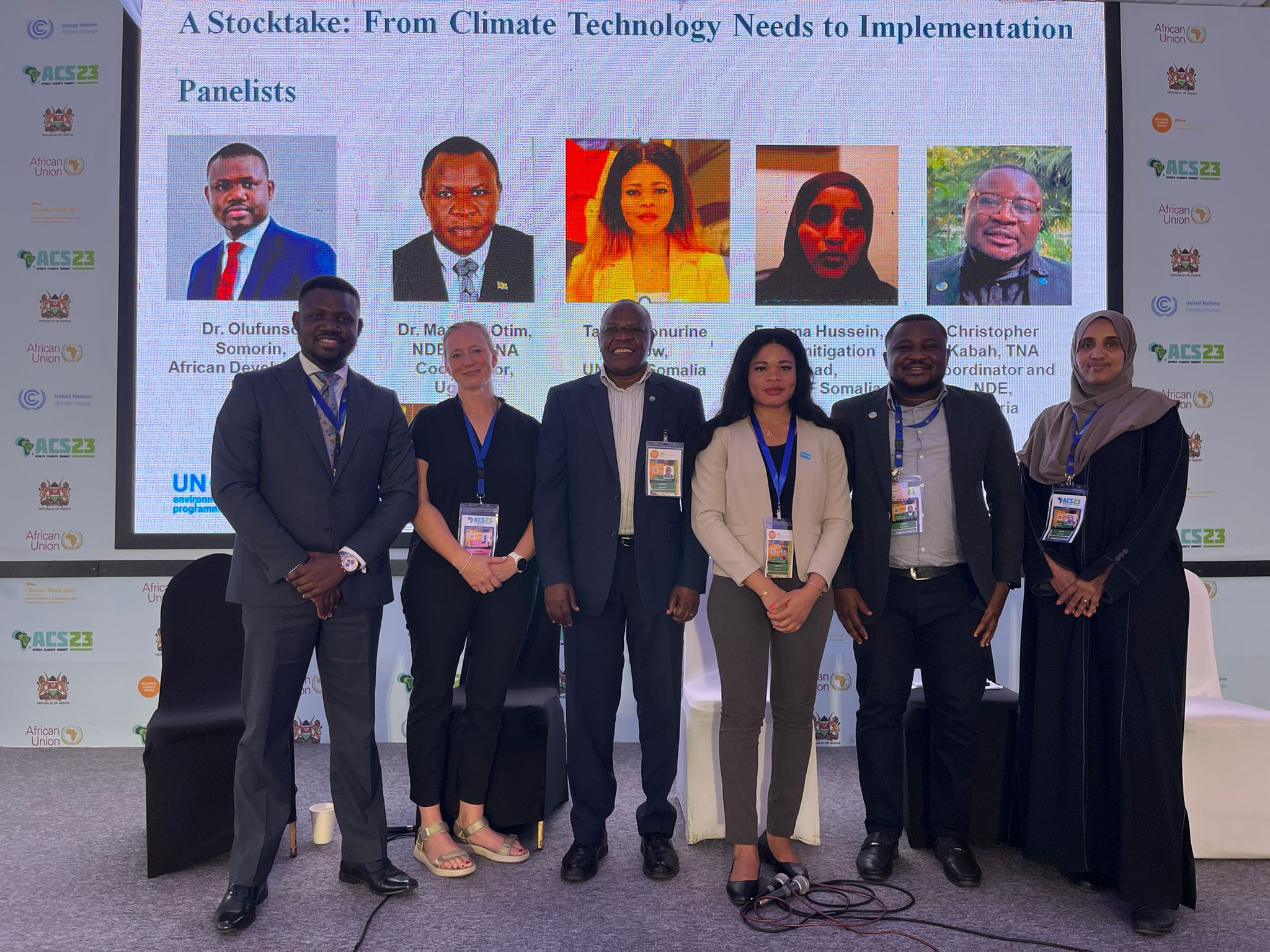Enhancing the development, transfer and uptake of technology is a key pillar of the international response to climate change. Developing countries’ efforts to conduct effective Technology Needs Assessments (TNAs) and implement their prioritized technologies, has become instrumental to the UNFCCC implementation efforts.
In an official side event at the Africa Climate Week panellists discussed how to overcome the implementation gap enhancing the development, transfer and uptake of climate technology sharing perspectives and different country examples from the African continent. The event was moderated by Sara Traerup, Global TNA project lead from the UNEP Copenhagen Climate Centre.
Having recently concluded its TNA, Liberia TNA coordinator Christopher Kabah stated the importance of aligning the TNA process with other national development processes. He especially highlighted how the TNAs can play a unique role in the implementation of the Nationally Determined Contributions, and pointed to another important building block in order to close the implementation gap – the involvement of the private sector from the beginning.
Maxwell Otim, TNA Coordinator in Uganda seconded the involvement of the private sector and called on governments to create enabling environments for innovation and investments facilitating the uptake and scale of climate technologies.
Barriers for implementation go beyond technology
Fatuma Hussein, TNA mitigation lead for Somalia, shared perspectives from a country currently implementing a TNA. She stressed the need to anchor the TNA process within the government and engage multiple national stakeholders.
She also advocated for the inclusion of women in discussions at the local and national levels, recognizing that the barriers to closing the implementation gap extend beyond technology and financing to include skill gaps, especially among youth.
Tambe Honourine Enow, CTCN youth delegate, now with UNICEF Somalia, emphasized the importance of providing capacity building to empower youth and enhance their access to jobs. She called on the international community to offer more vocational training to support the adoption of climate technologies.
Olufunso Somorin, representing the African Development Bank, highlighted the early involvement of the Ministry of Finance in country-driven TNA processes. He stressed the importance of risk reduction in investments and underlined the role of financial and political incentives in advancing Technology Action Plans to close the implementation gap.
Supporting more than 30 African countries
Since 2009, the UNEP led, GEF-funded, Global Technology Needs Assessment project has supported more than 30 countries in the African region, the objective being to assess countries’ technology needs in relation to climate change adaptation and mitigation.

